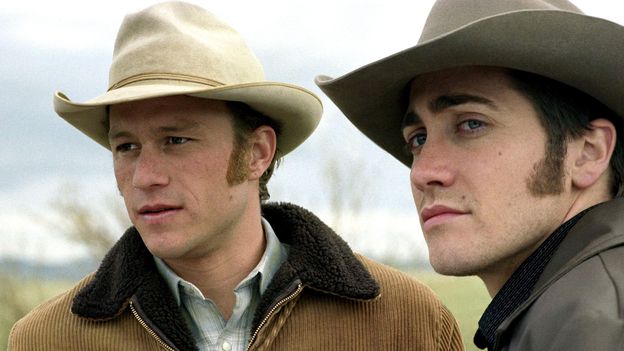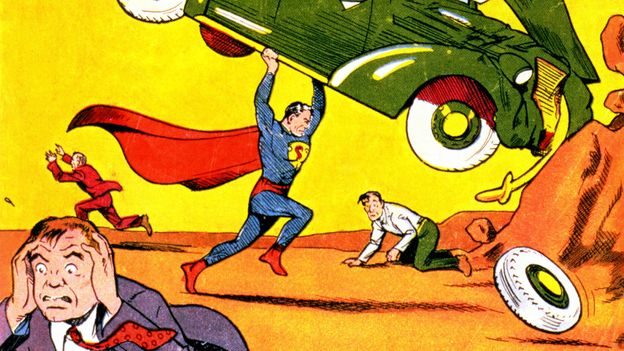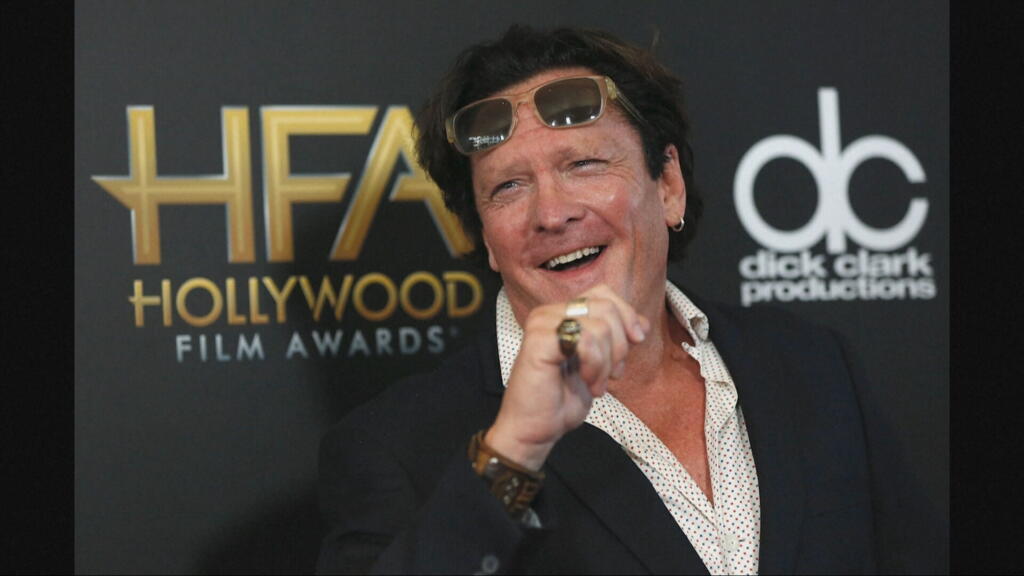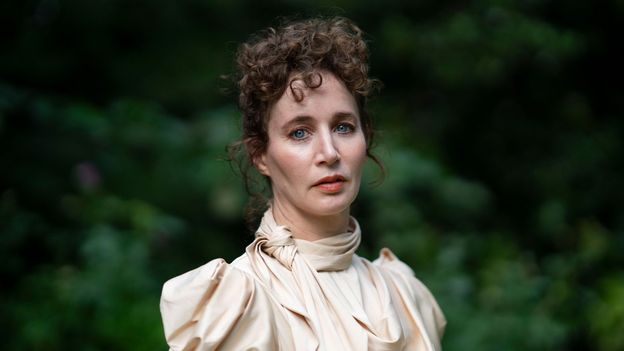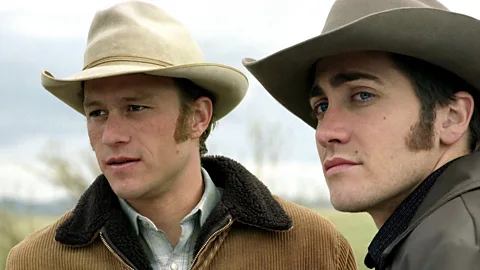 Alamy
AlamyTwenty years in the past, Ang Lee’s drama in regards to the love between two male sheep herders was lastly launched after a protracted battle to get it made. It was a watershed second for homosexual illustration that balanced enjoying by Hollywood’s guidelines and altering them.
When it was launched in 2005, Brokeback Mountain entered the collective consciousness in a method that’s vanishingly uncommon for a movie with queer subject material. Even non-cinephiles would have been conscious of the “homosexual cowboy film”, because it was typically described within the press, and the next controversy when it misplaced the Academy Award for finest image to Crash, a slipshod crime movie that now frequently seems on lists of the worst Oscar winners ever.
Brokeback Mountain did take house three Oscars, together with a prestigious finest director prize for Ang Lee, and stays a beloved homosexual touchstone. Actor Paul Mescal not too long ago complained that it feels “lazy and irritating” to match his upcoming movie The History of Sound, a interval romance wherein he and Josh O’Connor play travelling lovers in rural Maine, to Lee’s tender neo-Western about romantically attracted sheep herders Ennis Del Mar (Heath Ledger) and Jack Twist (Jake Gyllenhaal). Whether or not you agree with Mescal or not, the persistent comparisons are an indication of Brokeback Mountain’s enduring influence and recognition. Certainly, to mark its twentieth anniversary, Lee’s movie is now being re-released in US cinemas this week for a restricted engagement.
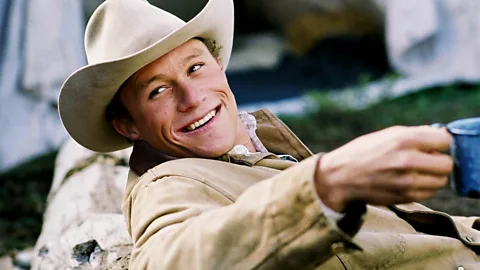 Alamy
AlamyTailored by screenwriters Larry McMurtry and Diana Ossana from a 1997 brief story by Annie Proulx, Brokeback Mountain was a comparatively novel proposition again in 2004. “The actual fact its two leads had been good-looking A-list male stars and [it showed] their characters in a romantic story collectively was groundbreaking,” says Tim Teeman, creator of In Mattress With Gore Vidal: Hustlers, Hollywood, and the Personal World of an American Grasp. This view is broadly echoed by queer movie critic Manuel Betancourt, creator of Hiya Stranger: Musings on Fashionable Intimacies, who says the movie’s success with critics and audiences alike felt like the beginning of a “new period of homosexual illustration [on screen]”.
On the time, Brokeback Mountain regarded like a shocking pivot from director Ang Lee, who had not too long ago made the 2003 superhero movie Hulk, although his different directing credit ranged from an acclaimed Jane Austen adaptation (1995’s Sense and Sensibility) to a massively profitable martial arts movie (2000’s Crouching Tiger, Hidden Dragon). The movie’s core solid was a quartet of hotly-tipped rising stars of their twenties: Ledger and Anne Hathaway would go on to win Oscars for subsequent roles, whereas Gyllenhaal and Michelle Williams are not often removed from the awards season dialog.
The way it was pioneering
“It is easy to take with no consideration the best way that Brokeback Mountain, with its starry solid and A-list director, profoundly modified the form of LGBTQ+ illustration within the mainstream,” argues Kyle Turner, creator of The Queer Movie Information: 100 Movies That Inform LGBTIA+ Tales. Turner notes that “the wave of mainstream queer strikes within the 90s” tended to “toggle between Aids-related dramas like Philadelphia (1993) and And the Band Performed On (1993), and lighter comedies like The Birdcage (1996) and In & Out (1997)”. Against this, he believes that Brokeback Mountain carved out a brand new area of interest as a “easy and critical” movie that received “newfound respectability” for a romantic story involving same-sex lovers.
That story begins in rural Wyoming in 1963, when drifters Ennis and Jack are employed by an area rancher to herd sheep by grazing floor on the titular Brokeback Mountain. One night time, with their inhibitions loosened by moonshine, Jack makes a move at Ennis and the 2 males have intercourse in a tent – a fairly audacious scene for a mainstream movie in 2005. When Brokeback Mountain got here out in December 2005, Ossana, who was additionally the movie’s producer, made some extent of attending screenings in a few of the US’s extra conservative states to gauge the viewers’s response. “The theatres had been packed, and in each theatre it was the identical – after the tent scene, 5 or 6 individuals would stand up to depart,” she tells the BBC.
Brokeback Mountain grows sadder and extra anguished after Ennis and Jack consummate their relationship. Their sheep-herding summer season ends with the 2 males scrapping, presumably in frustration on the romantic emotions they dare not acknowledge. Ennis then marries his fianceé Alma (Williams), whereas Jack meets and marries rodeo rider Lureen (Hathaway). It is 4 years earlier than the 2 males meet once more, at which level Jack asks Ennis to depart Alma and construct a life with him. Heartbreakingly, it is a big leap that Ennis cannot carry himself to make. “Everybody talks in regards to the Nineteen Sixties being a time of ‘free love’, nevertheless it was truly a really narrow-minded and restrictive time for many individuals in America – that is what the hippies had been rebelling in opposition to,” Ossana says.
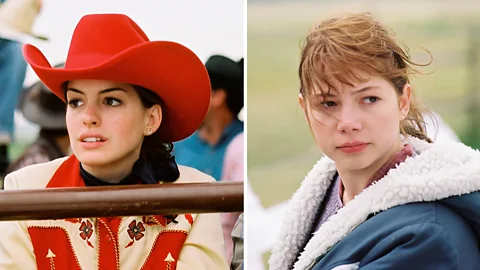 Alamy
AlamyFor Ennis, the prospect of dwelling in a homosexual relationship with Jack is just too a lot to countenance, so for the subsequent 20 years, their ardour is restricted to sporadic fishing journeys which are separate from their on a regular basis lives. The boys are affected by overt exterior homophobia: when Jack returns to Brokeback Mountain, he’s instructed by a prejudiced rancher that there isn’t any work there for males “who stem the rose”, a deceptively elegant euphemism for homosexual intercourse. However finally, it’s Ennis’ deep-rooted internalised homophobia that thwarts their potential happiness.
The challenges of getting it produced
Thinly-veiled homophobia – this time in early-2000s Hollywood – made Brokeback Mountain an immense problem for Ossana and her fellow producer James Schamus. After she learn Proulx’s brief story in 1997, Ossana and screenwriting companion McMurtry persuaded the creator to allow them to adapt it for the display. “Annie stated, ‘I do not see a movie there, however have at it,'” Ossana recollects. They accomplished the screenplay in three months, nevertheless it took practically eight years to get the movie into manufacturing. “The largest drawback was casting Ennis. Actors would commit after which again out, or they simply had been too afraid based mostly upon what their representatives had been telling them,” she explains – as a result of for an aspiring main man on the time, enjoying a homosexual character was extensively considered as “profession suicide”.
After Lee joined the undertaking in 2001, the producers discovered an actor keen to play Ennis, however this star dropped out round 5 months later. “I already had a sense he may again out,” Ossana says, alluding to the extensively held trepidation about enjoying a homosexual character. By this level, she was already satisfied that Ledger was good for the function based mostly on his haunting efficiency within the 2001 romantic drama Monster’s Ball. Crucially, too, he had beforehand “performed a homosexual teenager in a cleaning soap opera” in his native Australia, so Ossana hoped he could be extra “open” than his American friends.
Her hunch was right, however Ossana says studio executives had been initially reluctant to solid Ledger as a result of they felt he wasn’t “macho sufficient” to play a cowboy – or perhaps a “wannabe cowboy”, as she sees the character. “It was most likely useful, when it comes to the movie’s infiltration into the mainstream, that [Ennis and Jack] are two males who inhabit a standard type of masculinity,” Turner says. Betancourt believes Brokeback Mountain was capable of present a watershed second in LGBTQ+ illustration exactly as a result of it was rooted in confirmed Hollywood tropes. “As a Western and a melodrama, it performed inside two well-worn genres and infused them each with new vibrancy – primarily as a result of truth it is a love story between two males,” he says.
 Alamy
AlamyOn the similar time, Brokeback Mountain additionally adheres to a different Hollywood trope: what Teeman describes as depicting “queer love as stunning however doomed”, a story that performs out within the likes of The Kids’s Hour (1961) and Philadelphia (1993). The 2 males’s flickering romance is lastly extinguished when Jack dies in ambiguous circumstances. Lureen tells Ennis over the cellphone that Jack was killed by an exploding tyre – although on the similar time, we see photographs of Jack being viciously overwhelmed by a bunch of males. Ennis is envisioning, all too believably, his lover being killed in a homophobic hate crime.
Its debatable legacy
Maybe as a result of it performed by the principles whereas difficult them on the similar time, Brokeback Mountain’s place in movie historical past is assured. In 2018, it was chosen for preservation in america Nationwide Movie Registry, which recognises works which are “culturally, traditionally, or aesthetically vital”. It occupies an equally integral, although extra difficult place, within the queer movie pantheon. “As a bit of cinema, it stays as ravishing and disarming as ever,” Betancourt argues, “however as a pivot level for queer illustration, it stays as singular however limiting because it was then.” It’s, in spite of everything, the story of two closeted homosexual or presumably bisexual males who “move” as straight of their on a regular basis lives.
Although Brokeback Mountain stays necessary and influential, it is troublesome to quantify its long-term influence on LGBTQ+ illustration. Teeman notes that Hollywood gave a inexperienced mild to a number of “mainstream queer-themed movies” in its wake, notably Milk (2008) and The Youngsters Are All Proper (2010); these had been adopted in flip by Carol (2014), Moonlight (2016) and Name Me by Your Title (2017). However he additionally believes “there’s little consistency and regularity within the circulation of queer-themed tales and lead characters to the display”. For Teeman, “TV and theatre are [still] extra radical than movie in relation to queer illustration.”
Brokeback Mountain additionally retains a novel relevance due to its place within the ongoing debate about whether or not straight actors ought to play homosexual roles. Each Gyllenhaal and Ledger, who died in 2008, are extensively presumed to be heterosexual, although Ossana says it was “none of my enterprise” as a producer to ask questions on their sexual orientation. “It is the previous chestnut, and Brokeback Mountain is the last word exemplar,” Teeman says. However even with these caveats, it stays a surprising and heartbreaking piece of cinema that strikes a specific chord with LGBTQ+ viewers. Brokeback Mountain presents a stark reminder that denying your true identification is a tragedy that may derail a number of lives without delay.
Brokeback Mountain is being re-released in US cinemas, starting with particular showings on June 22 and 25.

